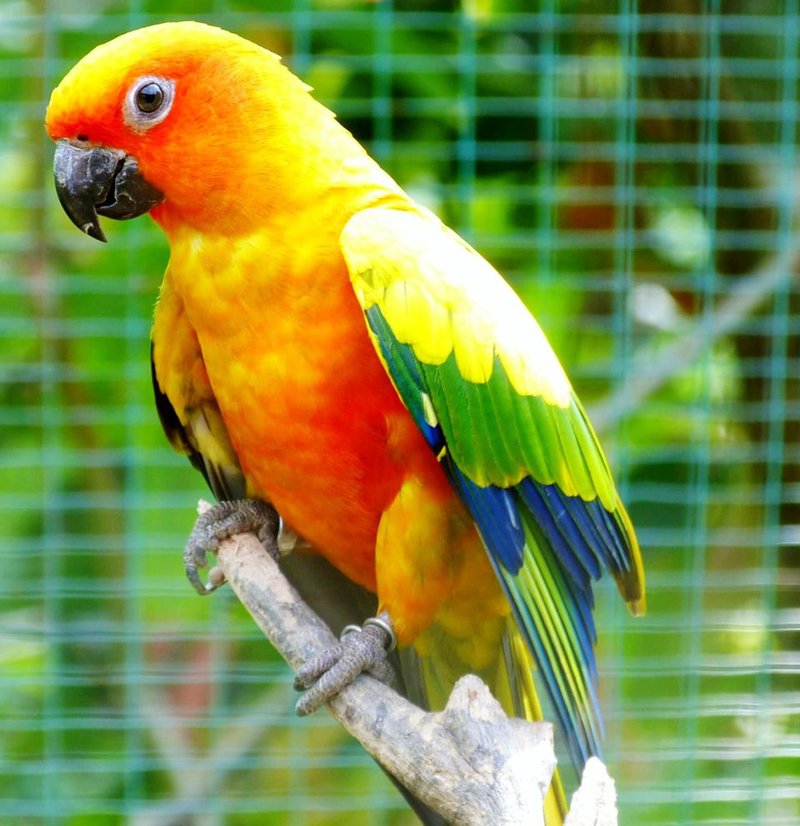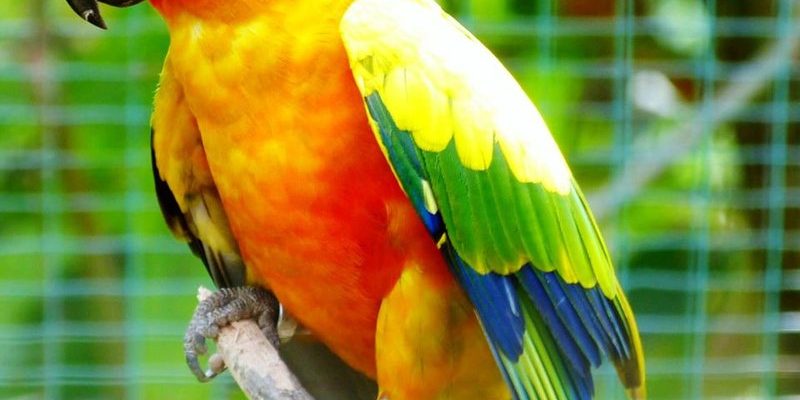
So, if you’re considering a conure but already have other pets or birds, let’s dive into how conures might fit into your home. We’ll explore their social nature, what you should watch for, and how to help everyone get along. Grab a cup of coffee, and let’s chat about conures and their potential friendships!
Understanding Conure Personalities
Conures are known for their playful and affectionate nature. These birds are typically quite social, which means they thrive on interaction with others—whether that’s humans or other birds. Imagine conures like the life of the party; they love to socialize and often seek out companionship. Their lively antics and chirpy conversations can be quite entertaining!
However, it’s important to remember that each conure has its own personality. Some may be more tolerant of other pets, while others can be a bit territorial. For instance, if you have a conure that’s used to being the center of attention, introducing a new pet might ruffle some feathers—literally! It’s essential to consider your bird’s temperament and how it might mesh with your other animals.
Conures and Other Birds
So, how do conures fare when it comes to interacting with other birds? Well, the answer can vary widely based on the species and individual characteristics of the birds involved. Conures can sometimes get along well with other parrot species, like budgies or cockatiels. They share similar social needs and can often engage in playful behaviors together.
However, some birds, especially larger or less social species, might not appreciate a conure’s boisterous antics. For instance, a more reserved bird, like a finch, might find a conure’s loud calls and energetic movements overwhelming. Here are a few tips to help make bird introductions smoother:
- Gradual Introductions: Allow the birds to see and hear each other before letting them interact.
- Neutral Territory: Try introducing them in a space that neither bird claims as their own.
- Supervised Interaction: Always monitor their interactions until you’re confident they get along.
Ultimately, the key is to watch for signs of stress or aggression. If you see your conure or another bird becoming upset, it’s best to separate them and try again later.
Conures with Other Pets: A Balancing Act
If you have pets like cats or dogs, introducing a conure into the mix can be a bit of a balancing act. Many dogs and cats have natural predatory instincts that might make them curious (or even a little too interested) in a small bird. It’s crucial to ensure that both your conure and your other pets feel safe and comfortable.
To start, make sure your conure has a secure cage and a safe space where it can retreat if it feels threatened. When introducing the conure to your dog or cat, keep them on a leash or in a carrier at first. This way, the other pet can get used to the bird without any risk of harm. Over time, as they get more comfortable with each other, you can gradually allow for closer interactions.
Also, it’s essential to provide mental stimulation for all pets involved. This could mean giving your dog a toy to play with while your conure is out of the cage or giving your cat a cozy spot to watch the bird without attempting to pounce.
Signs of Stress in Conures
Recognizing signs of stress in conures is crucial for ensuring their well-being. They may not always vocalize their discomfort, so watching for physical cues is vital. Here are some signs that your conure might be feeling uneasy:
- Feather Plucking: Excessive plucking can indicate stress or discomfort.
- Loud Vocalizations: While conures are naturally loud, unexpected screaming can signal distress.
- Aggressive Behavior: Lunging, biting, or fluffed feathers can indicate a bird that feels threatened.
If you notice any of these behaviors, it’s important to assess the situation and make adjustments. Maybe they need more space or time apart from other pets. A little observation can go a long way in keeping everyone happy and healthy.
Creating a Harmonious Home Environment
To foster a harmonious environment for your conure and other pets, focus on creating safe spaces for everyone. Your conure should have its own area where it can play, eat, and relax without interference. Similarly, your other pets should have spaces they can retreat to when they need a break from the excitement.
You might also consider providing enrichment activities for all pets. For instance, set up climbing branches for your conure, puzzle toys for your dog, and scratching posts for your cat. This way, they can engage in their own activities while coexisting peacefully.
Also, try to spend quality time with each pet individually. Giving your conure some one-on-one attention can lessen any jealousy or territorial behaviors towards other pets.
When to Seek Professional Help
Sometimes, despite your best attempts at creating a peaceful environment, things don’t quite work out. If you find your conure being overly aggressive, stressed, or if there are ongoing conflicts between your pets, it might be wise to seek the help of a professional. An avian vet or an animal behaviorist can provide valuable insights tailored to your specific situation.
They can help you identify the root of the issues and suggest strategies to improve the dynamics among your pets. After all, a happy home is one where every member—feathered or furry—feels secure and loved.
Final Thoughts
So, are conures good with other birds or pets? The answer isn’t black and white. It depends on a variety of factors like individual personalities, the types of pets involved, and how you manage their interactions. With careful introductions and a little bit of patience, many conures can thrive in a multi-pet household. Just remember to pay attention to their needs, provide safe spaces, and foster positive experiences.
Creating a harmonious blend of different pets can be a rewarding experience. With the right approach, your home can be a lively, joyful place where all animals coexist happily. Here’s to finding that perfect balance and enjoying all the unique personalities that come together in your home!

